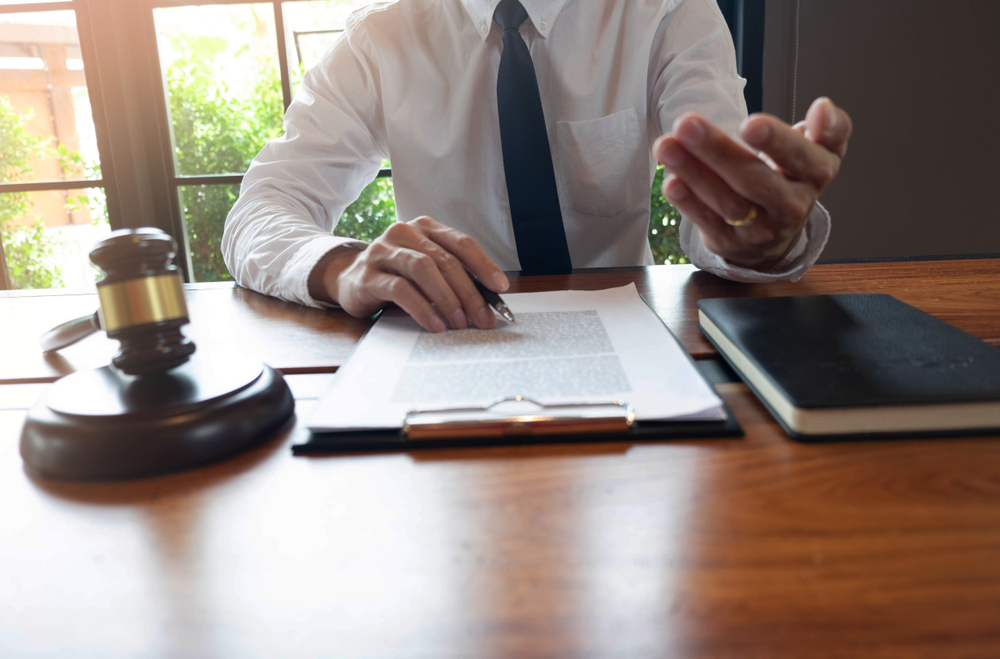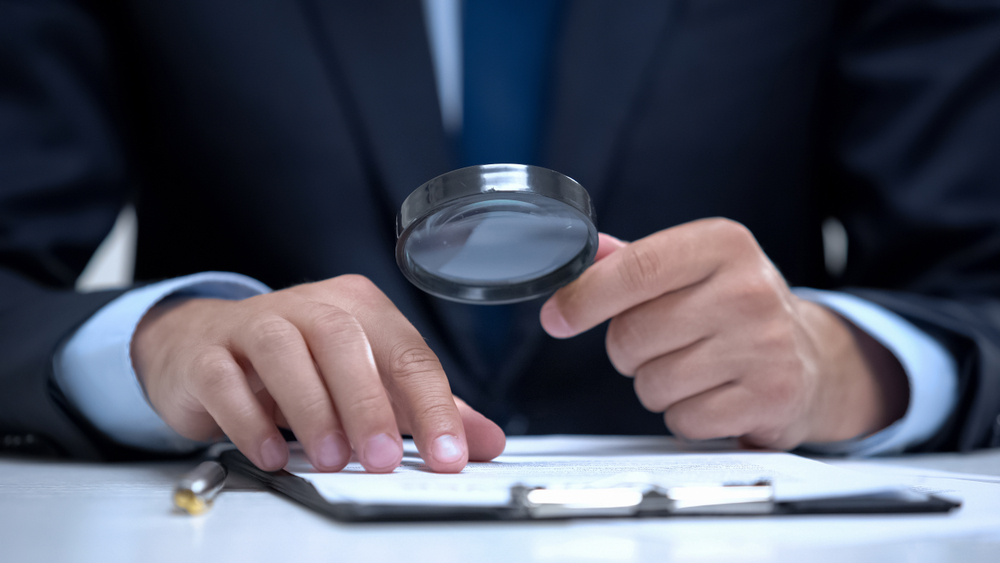The moments and days after a serious accident feel like a blur. You’re home now, away from the immediate chaos of the emergency room or the accident scene, but a new kind of stress is setting in.
Medical bills might be arriving, you may be unable to work, and the physical and emotional pain can be overwhelming. As you consider your next steps, you might decide to schedule a free case evaluation with our New York personal injury lawyer.
It allows you to tell your story clearly and helps the legal professionals you meet with understand the full scope of what you’re going through. Think of it as building a foundation for your potential case.
- This meeting is a no-obligation conversation for you to understand your options.
- Your main goal is to provide a clear picture of what happened and how it has affected your life.
- Even if you don't have every document, bringing what you can is a great start.
Schedule a Free Case Evaluation
Why Preparation Matters for Your FREE Case Evaluation
Walking into a meeting with an attorney can feel intimidating, especially when you are recovering from an injury. But arriving prepared can shift that feeling, empowering you and putting you in a position of control.
Instead of spending the entire time trying to piece together the basic facts, you can move on to the more important questions about your rights and potential paths forward. It helps transform the meeting from a simple fact-finding mission into a meaningful, strategic conversation.
- It Maximizes Your Time: A free case evaluation is a valuable opportunity. Coming prepared ensures you make the most of every minute.
- It Demonstrates Seriousness: Bringing organized documents shows that you are taking your situation seriously, which helps set a productive tone for the entire process.
- It Helps You Remember Details: Gathering documents can jog your memory about important details of the accident or your recovery that you might otherwise forget.
The Core Documents
While every case is unique, certain types of documents are almost always helpful. These papers create a factual backbone for your story. Don’t worry if you can’t find everything; the goal is to bring what you have. A legal team can often help you track down missing documents later.
Accident-Related Information
This category includes any official report or evidence from the scene of the incident itself. These documents provide an objective, third-party account of what happened.
Whether your injury occurred in a car crash on the Long Island Expressway, a slip and fall at a Queens shopping center, or on an unsafe work site in the White Plains, an official report is a powerful piece of information.

- Police or Accident Report: If law enforcement responded, a copy of their report is one of the most important documents you can bring. It contains the date, time, location, parties involved, and sometimes the officer's initial assessment of what happened.
- Workplace Incident Report: If you were hurt at work, especially in a construction accident, you may have filed a report with your supervisor or the site safety manager. Bring a copy.
- Photos and Videos: Pictures or videos you took of the accident scene, your injuries, and any property damage (like a crushed car or a hazardous spill) are incredibly powerful.
Medical Records and Documentation
Your health and recovery are at the heart of any personal injury case. Your medical records tell how the accident has physically impacted you. It's important to show the connection between the incident and the injuries you sustained.
Start a folder at home where you can keep everything related to your medical care from the moment the accident happened. This includes records from the ambulance ride, the emergency room, and any follow-up appointments.
- Hospital and Doctor Paperwork: This includes discharge papers, visit summaries, and any notes or instructions from your doctors.
- Bills and Receipts: Keep all medical bills, prescription receipts, and receipts for any medical equipment you had to buy, such as crutches or a brace.
- Referrals and Future Appointments: Bring any documentation showing referrals to specialists (like an orthopedist or a neurologist) or a schedule of your upcoming physical therapy appointments.
Proof of Financial Losses from the Accident
A serious injury doesn't just take a physical toll; it can also create significant financial strain. One of the primary goals of a personal injury case is to account for these financial harms, which are legally referred to as damages.
It includes all how your bank account has been affected since you were hurt.
- Proof of Lost Income: Bring recent pay stubs or a letter from your employer stating your job title, rate of pay, and the dates you have been unable to work. If you are self-employed, bring documents that show your typical earnings.
- Repair Estimates: If the accident involved property damage, such as to your car in a T-bone collision, bring any estimates you have received for repairs or a statement from your insurance declaring the vehicle a total loss.
- Out-of-Pocket Expenses: Keep a running list and receipts for smaller costs that add up, like parking fees at the hospital, costs for transportation to doctor’s appointments, and co-pays.
Information Beyond the Paperwork
Not all important information comes on a piece of paper. Your own memory and notes are just as valuable. What you saw, heard, and felt is evidence, and organizing your thoughts before your free case evaluation can be immensely helpful.
Your Personal Account of the Incident
Before your meeting, take some time to write down everything you remember about the accident. Don't worry about making it sound perfect; just get the details down.
Writing a narrative can help you organize the events in your mind and ensure you don’t leave anything important out when you speak with the attorney.
- The "Before": What were you doing right before the accident happened? Where were you going?
- The "During": Describe the incident itself in as much detail as you can. What did you see, hear, and feel? What did other people do or say?
- The "After": What happened immediately following the incident? Who arrived on the scene? Did anyone apologize or admit fault?
Information About Other Parties
The person or company responsible for your injury is a central part of your case. Legally, this is about determining liability, the term for legal responsibility for the harm caused.
Any information you have about the other parties involved is crucial for establishing liability.

- Contact and Insurance Information: If you have the name, address, phone number, and insurance information for the other driver, a property owner, or a general contractor, bring it with you.
- Witness Information: If there were any witnesses to your accident, their testimony could be very important. Bring a list of their names and contact information if you were able to get it.
- Correspondence: Bring any letters, emails, or records of phone calls you have had with any insurance companies, including your own. It is often wise to avoid giving a recorded statement to an at-fault party's insurance adjuster before you have spoken with an attorney.
What if I Don’t Have Everything for a FREE Case Evaluation?
Reading a long list of documents can be intimidating. You may be thinking, "I was just in a traumatic accident. I don't have all of this!" Please, do not let that stop you from seeking help.
It is entirely normal and expected that you will not have every single piece of paper on this list. The most important thing you can do is take the first step and schedule the conversation. A dedicated legal team understands that you are in a difficult situation.
- The Goal is Progress, Not Perfection: Bring what you have. A few medical bills and the other driver's name are a great starting point.
- A Legal Team Can Help: Experienced law firms have resources to help you obtain key documents, like an official police report or your complete medical file from the hospital.
- Your Story is the Most Important Thing: The most critical piece of information is your own account of what happened. The documents help support your story, but your story is the foundation.
Questions to Ask During Your FREE Case Evaluation
Remember, this meeting is a two-way street. You are gathering information about your rights, but you are also getting a feel for the law firm and the people you might be working with. You should feel comfortable, heard, and respected. Asking questions is a great way to gauge if the firm is the right fit for you.
- Experience and Focus: "How much of your practice is dedicated to cases like mine?" and "Who in the office will be my primary point of contact?"
- Process and Communication: "What is the typical process for a case like this?" and "How will you keep me updated on any progress?"
- Resources: "What kinds of resources does your firm use to build a case?" This can tell you if they work with medical or financial professionals to fully understand the impact of your injuries.
Your Path Forward Starts with a Conversation

Recovering from a serious injury is a journey, not a single event. While gathering documents for a free case evaluation is a helpful and proactive step, the most important action you can take is simply reaching out for guidance.
At Queller Fisher, we understand the weight you are carrying. We focus on helping people who have suffered significant injuries in construction accidents, vehicle crashes, and other serious incidents.
If you have been seriously injured, let's start the conversation. Call Queller Fisher at (212) 406-1700 in New York City or (718) 892-0400 in the White Plains to schedule your free, no-obligation case evaluation today.